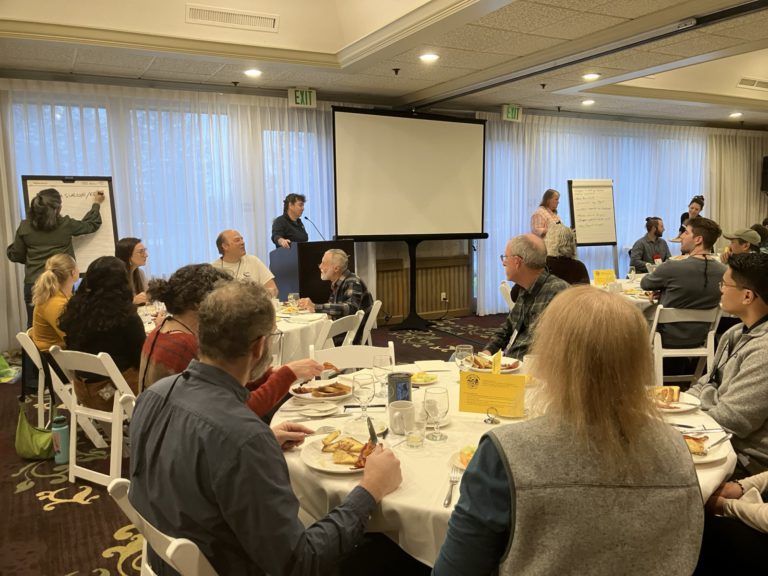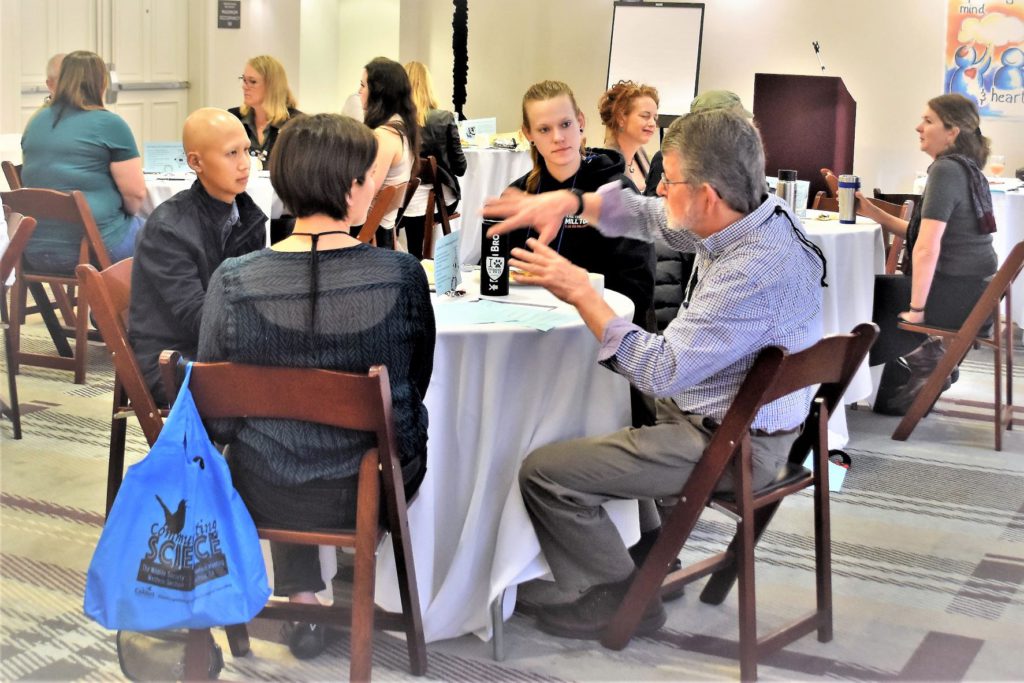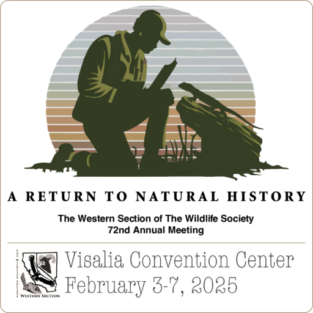
- Wednesday, February 5, 2025
- Session 8:00am to 9:45am, Visalia Convention Center
- Extra fee required, link to rates
- Facilitated by Lisa Fields, Wendy Loeffler, Shay Zanetti & Thea Wang
- A delicious, full buffet breakfast will be served, including:
- Hot coffee, hot tea, and orange juice
- Seasonal fruit
- Assorted muffins, danish, toast, and bagels
- Scrambled eggs, breakfast potatoes (vegan), turkey sausage, and french toast
- Special dietary requests can be accommodated with advance notice
The Breakfast Roundtable is an opportunity for us to kick-off the conference sessions with engaging conversation, delving deeply into the conference theme, A Return to Natural History, while enjoying a buffet breakfast.
The conference theme summary presents the idea that there is a current focus on modeling and statistical analysis in the wildlife profession, suggesting that natural history might not be as valued or practiced as in the past. We invite you to explore this in more depth to discuss whether there is difference between Natural Historians and Ecologists, whether they are simply two parts of a larger whole, or another perspective altogether.
We hope you will join us! All conference attendees are welcome and encouraged to register, no prior knowledge or experience is required. The more diverse the participation, the more diverse the conversation.
2025 Breakfast Roundtable Agenda:
We will begin with a short introduction followed by a full-group brainstorm focused on our interpretations of the term “natural history”. Next we will continue the conversation at our individual tables, allowing for a more thorough exploration. There will be two stages to the discussion at individual tables (you remain at the same table for both), then we will return as a full group to share our thoughts and ideas:
Table Discussion #1
- How do you define “natural history” in the context of wildlife professionals?
- What does “natural history” mean to you?
- How do you/we go about understanding the natural history of a species?
Table Discussion #2
- Do you think that modeling/statistical analyses have pulled us away from learning and understanding the natural history of species? Is this an evolution of our profession, a perception, or do you have another perspective?
- How is your perspective influenced by your career stage and personal experience?
- Why do you think this evolution, perception of this evolution, or another change has occurred?
- Do you think this is a problem?
- Are there actions that should/could be taken?

